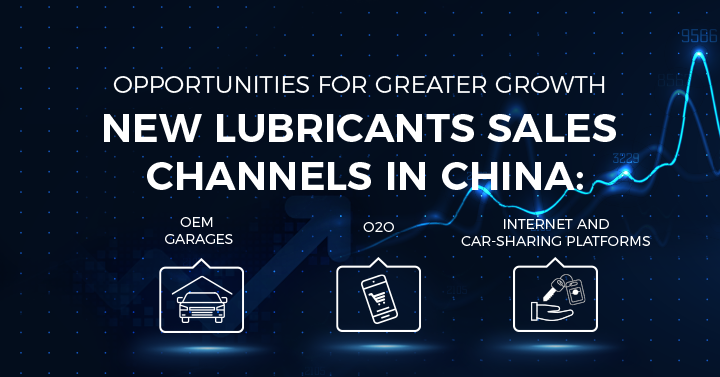Globally, China’s passenger car motor oil (PCMO) market ranks second in terms of volume, accounting for approximately 17% of demand. COVID-19 has slowed growth, with new vehicle sales declining by nearly 20% in the first half of 2020. This drop, along with reduced annual mileage due to lockdowns, has brought PCMO demand to under 1,000 kilotonnes in 2020, a slip of more than 15% from 2019. Contributing to this slowdown is the growing penetration of battery electric vehicles (BEVs), which are expected to expand to nearly 20% of annual sales by 2025.
Despite this setback, the Chinese PCMO market is projected to recover and grow over the next five years. While traditional lubricants marketing channels will still be the mainstay in China, new alternative channels are providing opportunities for greater growth as people adapt to a post–COVID-19 world. Currently, alternative channels account for less than 10% of the PCMO market; however, they are projected to double by 2025 as consumers embrace these new means of vehicle service and lubricants procurement. These new channels include OEM garages, online to offline (O2O) and other Internet platforms, and car-sharing platforms.
The OEM garage channel has been growing in China, with nearly a dozen OEMs establishing their own chain of service and repair garages that are distinctly separate from their franchised workshop (FWS) dealers. These smaller facilities typically only provide quick services such as engine oil changes and basic repairs, leaving more entailed work to the main FWS. They also service more than their own brand of vehicle, but they bring the brand reputation of the OEM into the market, helping them build brand equity faster. This helps OEMs grow their share of after-sales vehicle service and build customer retention.
Internet platforms such as JD.com and Tuhu have long established a strong foothold in China, and lubricants sales have started to grow. Many major lubricants marketers have formed official stores on the sites, helping customers avoid purchasing a counterfeit product; in addition, prices are typically lower there than at a retail or garage site. Government regulations on counterfeiting will help this channel grow as consumers accustomed to ordering online due to COVID-19 turn to these platforms even more to order everything they need, including service for their vehicles. The O2O channel helps consumers shop prices and brings cost–conscious consumers to local independent garages, as the platform negotiates fees and then sells the engine oil change service (complete with lubricant) to the consumer. The consumer can then choose a local participating garage at which to get their oil changed, prepaying for the service and selecting the lubricant online. This service was already growing pre-COVID-19; post-pandemic, it is expected to continue rising, especially with stricter anti-counterfeiting regulations coming into effect.
While ride-sharing will remain popular in the country, some of its expected growth has been hampered due to greater vehicle ownership as people concerned about any shared or public transport migrate toward personal vehicles. The car-sharing platforms of Didi and other well-established offerings in China offer their drivers discounted vehicle service. These major platforms have reached a large enough size to be able to procure their lubricants directly from lubricants marketers, as their volumes allow for greater discounts, which they can then help provide to their drivers as a bonus.
The growth in these alternative channels has helped them increase out of procurement from smaller second- and third-tier lubricant distributors, with third-tier distributors likely to lose the greatest volume. These distributors will be forced to shift their business model to more of a logistic–only service, as they will lose the lubricants sales aspect of their current business.
The Chinese PCMO market remains a major, dynamic market, with advances helped by the pandemic-induced shutdowns. Kline’s study on The Changing Face of Passenger Car Servicing and Emerging PCMO Sales Channels in China dives deeper into these changes and identifies opportunities for businesses involved in the lubricants value chain.

